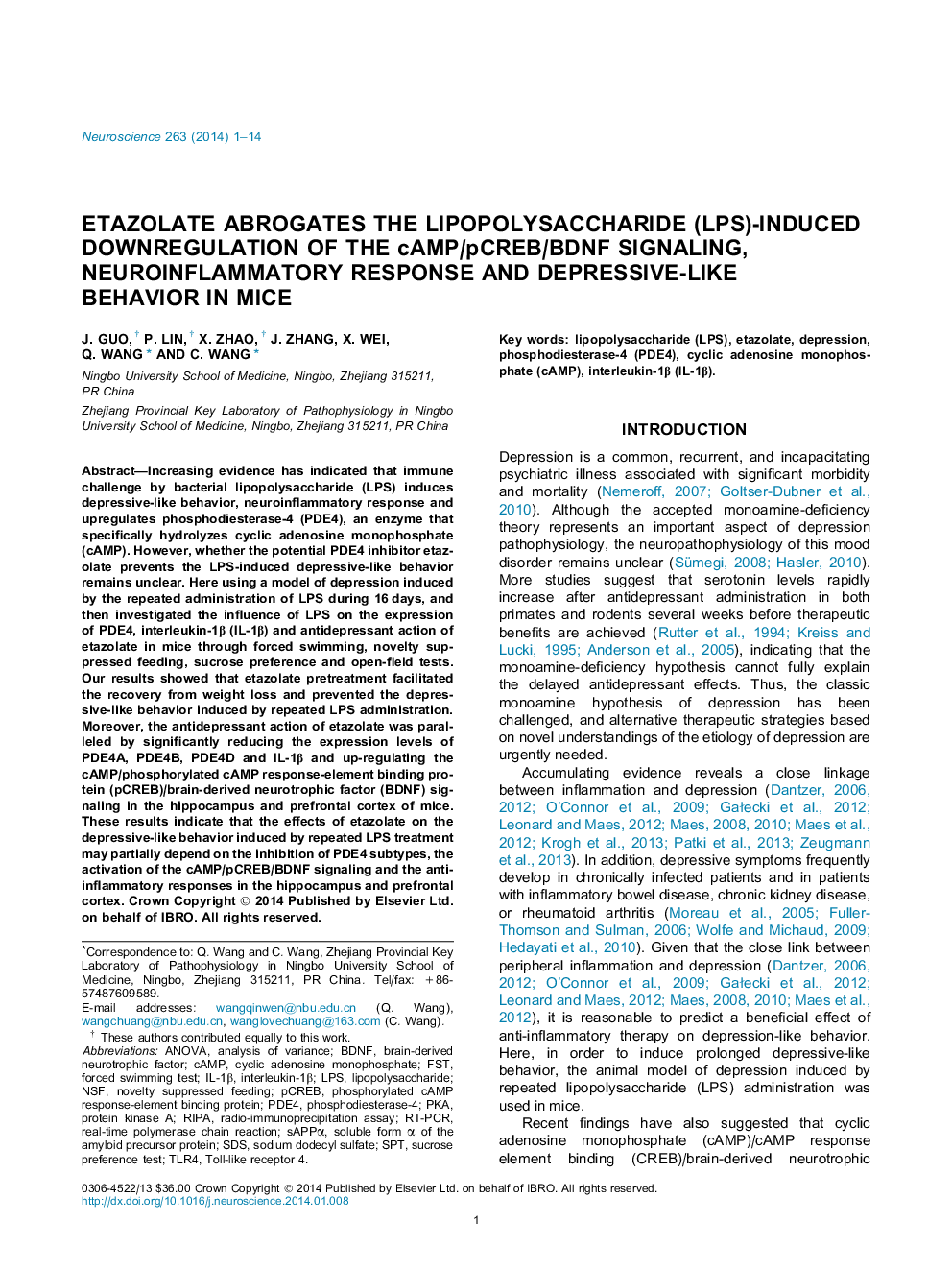| Article ID | Journal | Published Year | Pages | File Type |
|---|---|---|---|---|
| 4337739 | Neuroscience | 2014 | 14 Pages |
•Etazolate abrogates depressive-like behavior induced by repeated LPS treatment.•Etazolate significantly rescues cAMP/pCREB/BDNF signaling, lowers PDE4 subtypes levels and decreases neuroinflammation.•Etazolate may be a potential therapeutic agent in major depression.
Increasing evidence has indicated that immune challenge by bacterial lipopolysaccharide (LPS) induces depressive-like behavior, neuroinflammatory response and upregulates phosphodiesterase-4 (PDE4), an enzyme that specifically hydrolyzes cyclic adenosine monophosphate (cAMP). However, whether the potential PDE4 inhibitor etazolate prevents the LPS-induced depressive-like behavior remains unclear. Here using a model of depression induced by the repeated administration of LPS during 16 days, and then investigated the influence of LPS on the expression of PDE4, interleukin-1β (IL-1β) and antidepressant action of etazolate in mice through forced swimming, novelty suppressed feeding, sucrose preference and open-field tests. Our results showed that etazolate pretreatment facilitated the recovery from weight loss and prevented the depressive-like behavior induced by repeated LPS administration. Moreover, the antidepressant action of etazolate was paralleled by significantly reducing the expression levels of PDE4A, PDE4B, PDE4D and IL-1β and up-regulating the cAMP/phosphorylated cAMP response-element binding protein (pCREB)/brain-derived neurotrophic factor (BDNF) signaling in the hippocampus and prefrontal cortex of mice. These results indicate that the effects of etazolate on the depressive-like behavior induced by repeated LPS treatment may partially depend on the inhibition of PDE4 subtypes, the activation of the cAMP/pCREB/BDNF signaling and the anti-inflammatory responses in the hippocampus and prefrontal cortex.
